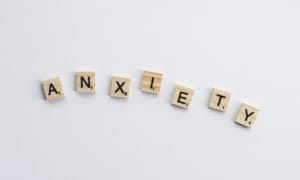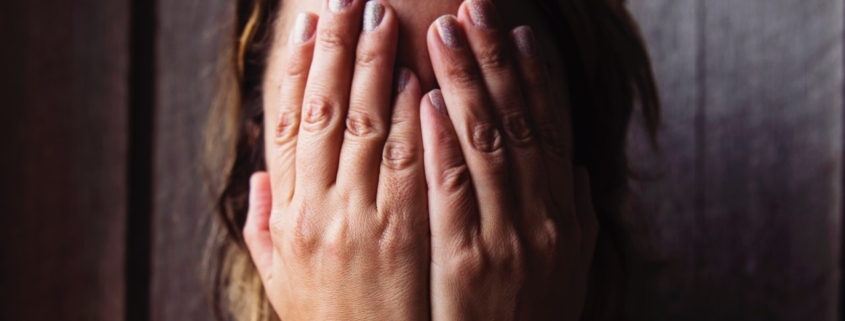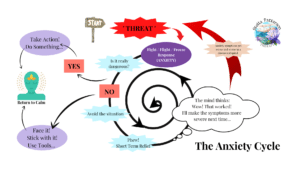Anxiety: You Are The Cure (RTT is the KEY)
If you have anxiety, you are definitely not alone. Anxiety is on the rise for many reasons and you should understand anxiety.
In September 2020 the Guardian wrote that there had been ‘an explosion’ in Anxiety over the past decade and the World Health Organisation claimed that the COVID 19 pandemic triggered a 25% increase in Anxiety.
Anxiety is the most common mental disorder, affecting 40 million adults in the U.S. population, according to the ADAA.
So what is Anxiety and why is it so debilitating?
Anxiety is a result of high levels of stress hormones in the body, but this is a normal response, it is how we react when we feel threatened, under pressure or stressed. It isn’t always a bad thing, it can spur us on, help us stay alert, make us aware of risks and motivate us to solve problems.
Types of Anxiety
- General Anxiety Disorder
- Social Anxiety Disorder
- Health Anxiety (Hypochondria)
- Obsessive Compulsive Disorder
- Panic Disorder
- Post Traumatic Stress Disorder PTSD
- Complex Post-Traumatic Stress Disorder (PTSD)
- Phobias
These high levels of stress hormones cause physical symptoms such as:
- Raised heart rate, chest pains, heavy weight in chest
- Difficulty breathing, feeling like lungs are crushing
- During a panic attack, feeling frozen, lack of reasoning
- Nausea
- Sweating
- Mental fog, lack of concentration, can’t make decisions
- Easily distracted (mentally)
- Insomnia – trouble sleeping or staying asleep
- Heightened alertness
- Stomach Issues – diarrhoea, IBS, butterflies in the stomach
- Shaky or trembling
- Headaches
- Dry mouth, changes in appetite
- Fatigue
- Muscle aches, pains, shoulder/neck pain
- Rising thoughts, uncontrollable overthinking
- Feeling of dread or impending doom
- Irritability
- Disassociation – feeling detached from self and emotions
Usually, these feelings are only temporary.Anxiety becomes an issue when the body does not return to calm and the stress hormones don’t dissipate out of the body and we get stuck in an anxiety cycle (FREE DOWNLOAD).
The more you fear bodily sensations, the more fear you feel and it can become an Anxiety Disorder.
The medical approach to Anxiety categorises it as follows
General Anxiety Disorder
This is a long-term condition where the client feels regular or uncontrollable worries over a wide range of issues rather than just one specific event. People with GAD feel anxious most days and often struggle to remember the last time they felt relaxed. As soon as one anxious thought is resolved it is replaced by another.
Social Anxiety Disorder (Social Phobia)
Social anxiety disorder (also known as social phobia) is a long-term and overwhelming fear of social situations. It can present as having a persistent, intense and chronic fear of being watched and judged by others and being embarrassed or humiliated by one’s own actions. It can be limited to a specific type of situation or occur in any type of social interaction.
Health Anxiety (Hypochondria)
Health anxiety (or hypochondria) is where an individual worries excessively about their own health or the health of loved ones or dependants. This often results in developing symptoms in alignment with their fears or enhancing and misinterpreting normal sensations as serious.
Obsessive Compulsive Disorder
Obsessive compulsive disorder is the experience of unwanted yet repeated thoughts, feelings, images or sensations leading to compulsive behaviours or mental acts in response.
Panic Disorder
Panic disorder describes feelings of anxiety, stress and panic which occur regularly, or at any time, often for no apparent reason. This can result in sudden and repeated panic attacks of intense fear and discomfort that reach a peak within a few minutes and have associated severe physical symptoms. Panic is the most severe form of anxiety.
Post Traumatic Stress Disorder PTSD
Post-traumatic stress disorder (PTSD) is an anxiety disorder caused by very stressful, frightening or distressing events. PTSD sufferers often relive the traumatic event through nightmares and flashbacks and experience those as if they are happening in the present moment.
Complex Post-Traumatic Stress Disorder (PTSD)
People who repeatedly experience traumatic situations, such as severe neglect, abuse or violence, may be diagnosed with complex PTSD. Complex PTSD can cause similar symptoms to PTSD and may not develop until years after the event
Phobias
A phobia is a persistent, excessive, unrealistic fear of an object, person, animal, activity or situation.
Vulnerable people can leave the doctor’s surgery with one of the above diagnoses, thinking that the label assigned to them belongs to them, but you are not your anxiety, it is not who you are or who you have become.Anxiety is like a guard dog.It is warning you that something needs your attention.It responds better to action than avoidance.Avoidance is a trap, it’s a death knell of freedom.
We have to face the pain we are running from…
The cave you fear to enter holds the treasure you seek – Joseph Campbell
RTT and Anxiety
Most people will concentrate on trying to change the behaviour (the symptoms) of anxiety but as RTT therapists we look at anxiety from a different perspective – we look at the root cause of the anxiety.We do this because it is not the event itself that makes you anxious, it is how you interpret the event.
I’ll use the following concept to illustrate what I mean:
Take an injection needle.
Someone who is scared of needles might be really anxious about having a needle put into their muscle, they might even have a panic attack beforehand, because, at some time in their past, they assigned a belief to needles (they are painful, they are frightening, they mean I am sick etc) so the prospect of having a needle put in their arm is terrifying and it feels painful (affirming the belief).
A drug addict will be excited about having a needle put in their muscle because it means they are going to get their next ‘fix’ (they have a belief that the needle will make them feel better), and they are quite happy to have a needle stuck in their muscle, it does not hurt them (or if it does its a price they are quite happy to pay for the reward)
It is not the event of having a needle put in their muscle causing the emotions and the feelings, but the meaning, the beliefs created from past experience that is creating the reaction.

Anxiety is the activation of the fight/flight mechanism, usually resulting from a triggering thought or circumstance, or unresolved trauma. As this is unresolved it continues to activate and we get stuck in the anxiety cycle (FREE RESOURCE) which is a vicious loop, the more we struggle, the deeper we sink. We can literally fuel anxiety by responding to the fear with fear.
During an RTT session we investigate how and why we acquired these beliefs, we then interpret what they meant to us at the time they were formed, we logically examine them, interrupt them and reinstall new beliefs which support us now. We do this at a subconscious level, creating new neural pathways, which are then reinforced by the personalised recording that you listen to for at least 21 days after the session.
By changing the subconscious beliefs we change the activation of the fight/flight mechanism and because the subconscious mind is no longer triggered, the stress hormones calm down and the physical symptoms subside.
What can I do to help my anxiety?
RTT is an extremely effective treatment for anxiety and it can usually be done in one to three sessions.It does, however, require work on your part!So leave the safe haven of your comfort zone and book a discovery call or an RTT treatment with me today and begin your journey to recovery.
There are however things that you can do to help calm your nervous system – download my free resource HERE





